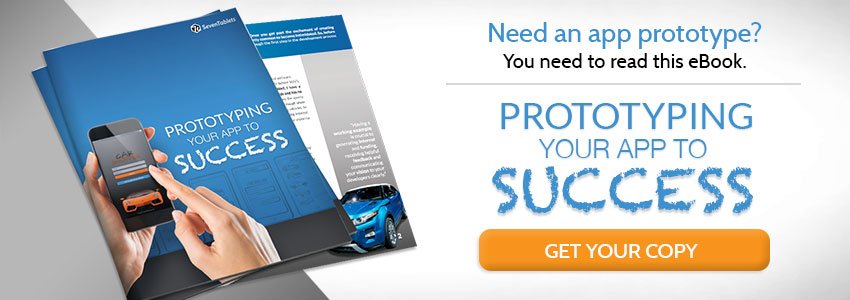Augmented reality (AR) is rapidly growing in popularity, as more and more developers launch applications equipped with AR capabilities. These apps are thrusting this cutting-edge technology into the mainstream.
It’s a high-tech movement that gained traction with the Pokemon GO app. Since then, we’ve seen a consistent stream of new apps that utilize this technology. Unlike virtual reality apps, which entail a fully-fictional and digital creation, augmented reality blends real-world footage with digital elements. This means AR is particularly effective at depicting realms and possibilities that were previously confined to one’s imagination. From virtual fitting rooms and AR tailor apps to virtual home staging and navigation, there’s no shortage of potential uses for augmented reality. So, how are some of the most clever companies using AR?
Using AR Apps as Training Tools
Academia was one of the first sectors to leverage augmented reality technology because visualizing complex concepts—such as human anatomy—remains useful in an educational setting. But only recently have companies started to invest in AR apps that are used solely for training purposes.
Consider the ability to virtually perform a complicated task or dangerous procedure before giving it a go in real life, much life a flight simulator. The consequences are significant, as this technology holds the potential to boost efficiency, reduce costs, increase profit margins and even save life and limb. For instance, a surgeon could rehearse a procedure before ever touching the patient, while an electrician could practice a complex repair, reducing the risk of an on-the-job injury.
Tech-savvy companies have recognized these benefits and as a result, more and more businesses are investing in enterprise apps and other in-house applications.
Using AR Applications as Preview Tools
Augmented reality is particularly useful for visually depicting various possibilities, whether it’s a new interior paint color for your living room, a new hairstyle or new office decor—complete with furnishings. The most clever uses of AR technology are for previewing the final result of a project, particularly those that are irreversible, costly or time-consuming.
We’re now seeing augmented reality apps that allow you to preview and fine-tune a makeover before the stylist gets to work. Eyeglasses, apparel and jewelry can be tried on using AR. And interior designers, developers, architects and landscapers are leveraging this technology to maximize client satisfaction when all is said, done and built.
Leveraging Augmented Reality Apps to Improve Safety
Only the most elite SWAT teams, military personnel and security firms have the luxury of rehearsing an operation in a replica of the structure where a raid, rescue or other mission will actually occur. For instance, in preparation for the raid that led to the death of Osama Bin Laden, Seal Team Six actually constructed a brick-and-mortar replica of the interior of Bin Laden’s compound after the military secured architectural plans for the structure. But the average military unit or law enforcement agency simply doesn’t have the time, resources or funding to build a replica structure. That’s where AR technology can help.
Footage of a property (or even digital renderings) can be inputted into an app using AR technology. Then, military or law enforcement agencies can plan an operation or event, verify sightlines and perform virtual run-throughs in a safe yet realistic digital environment. This application of augmented reality could benefit everyone from public safety officials to the military to private contractors, security firms and more. Even schools and hospitals could rehearse evacuations and other emergency procedures using this technology.
The Benefits of Augmented Reality for Business
By thinking outside the box, your company can earn a reputation as an innovator. In fact, new technologies such as augmented reality can propel a little-known brand into the mainstream consciousness—a feat that would otherwise require volumes of creativity, millions of marketing dollars and quite a bit of luck to achieve.
At 7T, our developers are experienced with not only augmented reality but also artificial intelligence, natural language processing, machine learning, predictive analytics and blockchain. As such, we’re well-positioned to integrate innovative technology into your application, thus giving you a competitive advantage.
Based in Dallas, 7T works with clients throughout Texas—including Austin and Houston—and beyond. If you’re ready to discuss your project, contact our team today.









